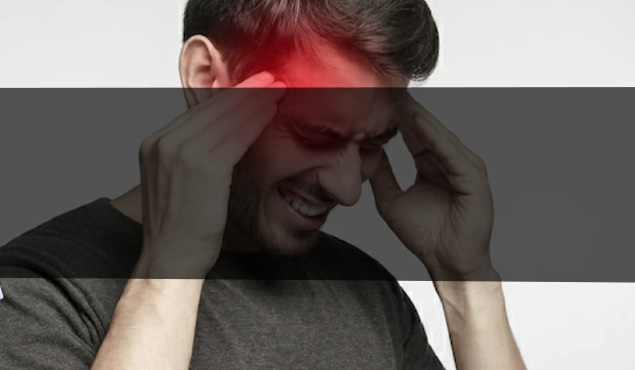Pros and Cons of Coffee: That May Surprise You!

Introduction
Coffee- the warm, aromatic hug in a mug that makes the world go round. It’s hard to imagine a morning without the rich aroma of freshly brewed coffee wafting through the air.
But did you know that coffee has an interesting history? Once considered “The Devil’s Drink,” coffee has come a long way and is now an integral part of modern society.
In fact, coffee is the most widely consumed beverage in the world, with over 166.63 million 60-kilogram bags consumed in 2021, as per stats published in Jan. 2021. Being a self-proclaimed Breve Coffee enthusiast, I can attest to the power of coffee to kick start my day.
But as with anything in life, coffee has its pros and cons. In this article, we’ll explore the upsides and downsides of coffee consumption, from its impact on our health and well-being.
So, grab your favorite coffee mug, and let’s explore the world of coffee.
Related Read: DIFFERENT TYPES OF COFFEE

Pros of Coffee
Are you ready for the ultimate “coffee-spilling-the-tea” session? Buckle up as you’re about to discover the pros of coffee:
Improved Alertness and Cognitive Function
Coffee is not just a delicious beverage that wakes you up in the morning. It is also a powerful brain booster that can improve cognitive function.
According to research published in Hindawi and Nature, drinking coffee regularly can increase the following cognitive functions:
- Concentration
- Alertness
- Motor control
- Executive speed
- Arousal
Moreover, another study by ScienceDirect says that consuming coffee can also help you with memory, vigilance, and mood. These parameters are essential for daily activities.
Reduced Risk of Several Diseases
If you love coffee, you are in luck. Not only does it taste great and keep you awake, but it also has some amazing health benefits.
Don’t take just my words. As per a study published in The Guardian, this delicious drink can reduce the risk of chronic liver disease.
Similarly, another report by Medical News Today states that 2-3 cups of coffee can lower risk of the chances of cardiovascular disease. On top of that, coffee is also linked to decreasing mortality.

Antioxidant Properties
A piece of good news for coffee lovers. Your favorite drink is a great beverage and a powerful antioxidant.
Antioxidants protect your cells from damage caused by free radicals, which are unstable disease-causing molecules.
Coffee contains many antioxidants, such as chlorogenic acids, caffeine, nicotinic acid, and tocopherols. As per Healthline and PubMed research, they can prevent inflammation, lower blood pressure, and improve blood sugar control.
Increased Metabolism and Fat Burning
Ready to turn up the heat on your metabolism? Coffee has got you back. It contains caffeine, a powerful substance that can boost metabolism and mobilize fat from fat cells.
In fact, a study published in the Harvard School of Public Health says drinking 4 cups of coffee daily can lead to a modest loss of body fat (up to 4%).
Boost in Physical Performance
Coffee isn’t just a beverage. It’s a way of life. And one of the best parts of this life-affirming elixir is its boost in physical performance.
Medical News Today’s article says that caffeine in coffee stimulates the central nervous system (CNS). This can improve your endurance and muscle strength.
Social Benefits
Who knew that coffee could be the ultimate social lubricant? Whether catching up with friends over a latte or bonding with coworkers over a morning brew, coffee uniquely brings people together.
Plus, coffee shops are the perfect spot for people-watching juicy conversations. So, head to your local cafe and let the magic happen next time you feel lonely or need a little social boost.

Cons of Coffee
Okay, folks, hold onto your coffee cups because it’s time to discuss the downsides of our favorite beverages. Here we go:
Adverse Effects on Sleep Quantity
You might be tempted to drink coffee all day if you are anything like me. But beware: coffee can mess with your sleep in more ways than one.
It contains caffeine, a stimulant that blocks your brain’s sleep-promoting receptors (adenosine). This makes you feel more alert and awake. Sounds good? Well, not if you want to get some quality shut-eye at night.
The article by Psychology Today says caffeine can also reduce your sleep efficiency from around 90% to 74%. This is almost as bad as taking Ritalin (A CNS stimulant).
Another study mentions that coffee can reduce the deep, slow-wave sleep you get.
And don’t think of cheating by drinking coffee early in the day. Drinking two cups of coffee six hours before sleeping can delay your natural sleeping time by 40-60 minutes.
Increased Risk of Anxiety and Jitters
While coffee can be your trusty sidekick in the battle against drowsiness, it can also be a villain in disguise. One of the cons of coffee consumption is the increased risk of anxiety and jitters.
As per the research of the American Psychological Association, taking too much can cause unpleasant effects, especially at high doses.
Moreover, If you have underlying mental health issues, you may be even more sensitive to these harmful effects of caffeine.

Dependency and Withdrawal Symptoms
Coffee is the one friend that everybody counts on. But what happens when this friend becomes a needy and dependent mess?
Well, that’s a downside of coffee dependency. And when you try to stop drinking it, many unpleasant withdrawal symptoms can appear.
Some of these symptoms are:
- Headache
- Fatigue
- Irritability
- Difficulty concentrating
- Depressed mood
- Tremors
- Constipation
Even the American Migraine Foundation suggests it would be ideal if people with frequent headaches could avoid coffee completely.
Negative Effects on The Digestive System
As long as coffee can be helpful for many things, it can affect your body, including the digestive system.
It can stimulate the colon muscles of the large intestine. It may sound good until you realize you have cramps, diarrhea, and urgency, according to a study by Manhattan Gastroenterology.
Addiction Potential
Lastly, taking too much coffee for a hardcore fan can cause addiction. The South African Journal says this beverage can trigger some brain chemicals similar to cocaine and amphetamines. This makes you crave more coffee.
And if you take over-the-limit coffee, you might experience dizziness, headache, nervousness, racing heart, or sleep issues.

The Role of Caffeine in Coffee
Caffeine is the magic ingredient that makes coffee so irresistible to many people. It is a natural stimulant that boosts your mood, energy, and performance.
But how much caffeine is in your cup of coffee? And how does it affect your body and brain?
The answer depends on several factors. These factors include the type of beans, the brewing method, the serving size, etc.
According to Healthline, an average cup of coffee contains about 95 mg of caffeine, but this can range from almost zero to over 500 mg, depending on your usage.
If you look at the mechanism of action of caffeine, it works by blocking some receptors in the brain called adenosine receptors.
These receptors are responsible for making you feel sleepy and dull. This way, coffee helps you stay awake and alert for longer periods.

Coffee and Sleep: How it Affects Different people
Often, people feel active after consuming a cup of Joe. That’s why it is a favorite drink for students.
But not everyone reacts to coffee the same way. Some people may feel sleepy, while others feel more active after drinking coffee. Why is that?
One possible explanation is the binding of coffee to the adenosine receptors. As explained earlier, these receptors are responsible for your sleep. The attachment of caffeine to these receptors will result in their depression. Thus, the amount of sleep will reduce.
In contrast, some people feel sleepy after taking coffee. This is because many consumers have developed a high tolerance for coffee. They need more coffee than usual to feel its effects.
Another reason for the depressing effects of coffee is the timing of the coffee. Taking your drink late in the evening or at night may disrupt your natural sleep cycle and make you feel tired the next day.
There are also many possible explanations, like fast metabolism, etc. Whatever the reason is, taking into account your coffee consumption, you can control your sleep well.
The Impact of Coffee on Different Demographics,
Coffee is popular worldwide, but not everyone can enjoy it equally. Here is how it can affect people with different demographics:
Children and Teenagers
Coffee is not recommended for young people. This can interfere with their growth, sleep, mood, and behavior. According to an article by Healthfully, caffeine can cause insomnia, cavities, bone loss, and decreased appetite in children.
Pregnant Women
The effects of coffee on pregnant women are a bit more complicated. According to the Verywell Family, drinking too much coffee (600 mg or more) can cause early miscarriage or low birth weight for the baby.
However, other sources like Cleveland Clinic say pregnant ladies can take moderate caffeine intake (less than 200 mg) to avoid the negative effects.
Pregnant women should consult their doctors before drinking coffee or other caffeinated beverages.

Elderly People
In elders, coffee shows a flexible effect. Some geriatrics patients can get negative effects like dehydration or increased stress. In contrast, others can get positive benefits like improvement in cognition or antioxidants perks.
So should an older person take coffee or not? Only a qualified physician can answer it.
Popular Myths and Misconceptions About Coffee
Here are some popular myths and misconceptions about coffee that we’ve heard. Still, they might not necessarily be true:
- Darker roasts have more caffeine than lighter roasts. But this one is a myth. While the flavor profile may differ, the caffeine content is actually lower in darker roasts.
- Coffee stunts your growth. This one’s been around since the dawn of time. But fear not- it’s just a myth. There is no evidence to suggest that coffee impacts your height.
- Decaf coffee is completely caffeine free. Sorry, decaf lovers. But decaffeinated coffee still contains trace amounts of caffeine.
- Coffee can cure a hangover. Unfortunately, there’s no scientific evidence to support this myth. Hydration and time are the best cures for a hangover.
- All coffee tastes the same. My dear friend, you couldn’t be more wrong. The flavor profile of coffee can vary widely depending on the roast, origin, and brewed method.
- Brushing your teeth after coffee will prevent them from staining your teeth. Not only is this a bad idea, but it can harm your teeth. Coffee is acidic, and brushing can cause damage to your enamel by rubbing it.
Nutritional Value of Coffee
Coffee contains more than a thousand chemicals and minerals. The proportion of these minerals varies from place to place.
Here is a table* that shows us the coffee contents in 1 cup of regular Joe (8 fl. oz.):
| Name | Amount | Unit |
| Water | 239 | g |
| Energy | 2.4 | Kcal |
| Protein | 0.288 | g |
| Total lipid | 0.048 | g |
| Carbohydrate | 0 | g |
| Fiber | 0 | g |
| Sugars | 0 | g |
| Fatty acids | 0.036 | g |
| Caffeine | 96 | mg |
Recommendations for Safe and Moderate Coffee Intake
While we may want to chug coffee all day, moderation is key to gaining the benefits without the negative side effects.
Therefore, here are some recommendations for safe and moderate coffee intake:
- Limit your daily intake to 400 mg or less. This is equal to 4 cups of coffee per day.
- Be aware of caffeine in other sources like energy drinks, tea, and chocolate.
- Avoid consuming coffee too close to bedtime to minimize sleep disruption.
- Experiment with different brewing methods and roast to find what works best.
- And most importantly, enjoy your coffee in moderation and with a smile.

Alternative to Coffee
If you are looking for a change of pace from your daily coffee routine, here are plenty of alternative beverages to perk things you up, including
- Matcha green tea
- Golden milk, made with turmeric, ginger, and other spices
- Yerba mate, a South American beverage
- Kombucha, the fermented tea
- Lemon water
- Chicory coffee
Conclusion
In conclusion, coffee is a beloved beverage with both pros and cons to consider. While this drink may improve alertness and provide antioxidants, it’s important to be mindful of its negative effects.
Understanding the role of caffeine in coffee and how it affects different people can also help you make informed choices about your daily cup of joe.
But if you want to switch things up, plenty of alternative beverages exist to explore. Remember to savor your brew whether you are a die-hard-coffee fan or enjoy the occasional cup.
FAQs
How does the caffeine in coffee affect the body?
Caffeine affects the body by stimulating the central nervous system. It improves alertness and focus.
Can drinking too much coffee lead to addiction or dependence?
Yes, excessive consumption of coffee can lead to addiction or dependence due to higher amounts of caffeine.
Can drinking coffee help with weight loss?
While coffee can boost metabolism and aid in weight loss, it’s important to maintain a balanced diet and exercise routine for optimal results.
Is it safe to drink coffee before exercising?
Yes, it is generally safe to drink coffee before exercise. However, it is important to consider the negative effects of coffee, such as jitters or disrupted sleep.
Can drinking coffee have an impact on heart health?
Yes, drinking coffee can affect the health of your heart. Moderate intake can have positive effects, such as reducing heart disease and stroke. However, excessive consumption can lead to negative outcomes.
Can drinking coffee stain your teeth?
Coffee may stain your teeth due to its high chromogen content. It can stick to the tooth enamel and cause discoloration over time.
